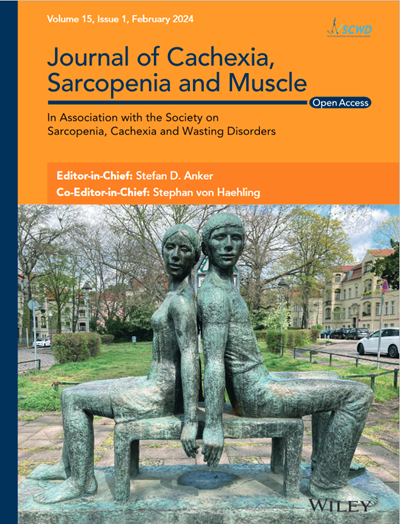The association between weight change after gastric cancer surgery and type 2 diabetes risk: A nationwide cohort study
Abstract
Background
Although gastric cancer patients generally experience drastic weight decrease post-gastrectomy, the impact of weight decrease on type 2 diabetes risk remains unclear. We investigated the type 2 diabetes risk after gastric cancer surgery according to postoperative weight decrease in gastric cancer survivors in South Korea, the country with the world's highest rate of gastric cancer survival.
Methods
This retrospective nationwide cohort study included gastric cancer surgery recipients between 2004 and 2014 who survived for ≥5 years post-surgery. We included patients without a history of diabetes at the time of surgery and those who had not received adjuvant chemotherapy before or after the surgery. Postoperative weight loss was defined as the per cent body weight loss at 3 years post-surgery compared with the baseline. The type 2 diabetes risk was evaluated using Cox regression analyses for five groups of postoperative weight decrease.
Results
In 5618 included gastric cancer surgery recipients (mean age, 55.7 [standard deviation, SD, 10.9] years; 21.9% female; mean body mass index, 23.7 [SD, 2.9] kg/m2), 331 patients (5.9%) developed postoperative type 2 diabetes during follow-up duration of 8.1 years (median; interquartile range, 4.8 years; maximum, 15.2 years). Compared with those who gained weight post-surgery, patients with ≥ −15% to < −10% of postoperative weight decrease (hazard ratio, 0.65; 95% confidence interval, 0.49–0.87; P = 0.004) had the lowest type 2 diabetes risk. A non-linear association occurred between postoperative weight decrease and the type 2 diabetes risk in gastrectomy recipients (Akaike's information criterion [AIC] for non-linear model, 5423.52; AIC for linear model, 5425.61).
Conclusions
A U-shaped non-linear association occurred between the type 2 diabetes risk and postoperative weight decrease in gastric cancer survivors who underwent gastrectomy. The lowest type 2 diabetes risk occurred in patients with ≥ −15% to < −10% of postoperative weight decrease at 3 years.

 求助内容:
求助内容: 应助结果提醒方式:
应助结果提醒方式:


